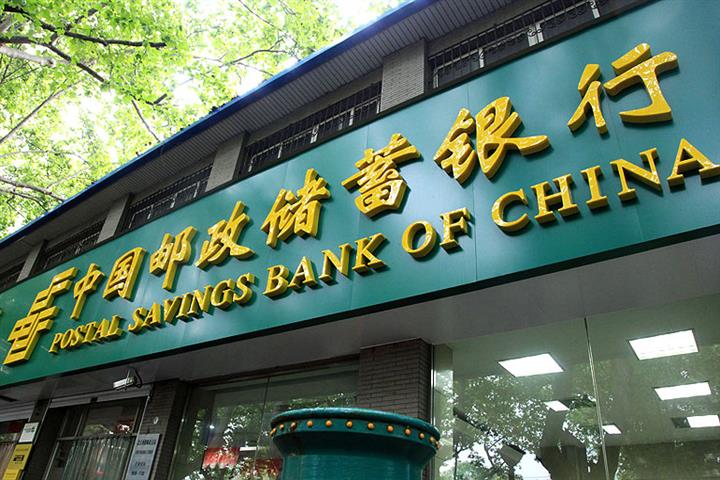 China’s Postal Savings Bank Plans USD6.2 Billion Private Placement to Boost Reserves
China’s Postal Savings Bank Plans USD6.2 Billion Private Placement to Boost Reserves(Yicai Global) Oct. 27 -- Postal Savings Bank of China is preparing to raise CNY45 billion (USD6.2 billion) through a private placement of new shares to replenish the bank’s core tier 1 capital, which refers to its reserves, and bring in new investors, the state-owned lender said yesterday.
Postal Savings Bank plans [SHA:601658] to issue a maximum of 6.77 billion shares on the Shanghai Stock Exchange at a price no less than CNY6.64 (USD0.92) apiece, the Beijing-based lender said yesterday.
This is a 67 percent markup on today’s closing price of CNY3.96, which will make it difficult for the bank to attract outside investors.
Participants in the private placement will be limited to 35 business entities and individuals, and the firm’s majority shareholder, China Post Group, will not participate, it said. All of the proceeds will be used to replenish the lender's core tier 1 capital.
The absence of China Post Group, which was the sole subscriber to the bank’s last private placement in March last year, plus the fact the current share price is much lower than the issue price, means that Postal Savings Bank could be setting itself up for failure.
Should the private placement be successful, it would lift the lender’s core tier 1 capital adequacy ratio, or the proportion of a bank’s capital to its risk, to 10.19 percent from 9.55 percent at the end of September, the lender said. As a key measure of a bank’s financial strength, the country’s financial regulators stipulate that the ratio should not be less than 5 percent.
It would also boost the lender's tier 1 capital adequacy ratio to 12.17 percent from 11.53 percent and its capital adequacy ratio to 14.74 percent from 14.1 percent, without taking into consideration any costs incurred, the bank said.
Postal Savings Bank logged a 0.37 percentage point dip in its core tier 1 capital adequacy ratio at the end of September from the end of last year, while its tier 1 capital adequacy ratio slipped 0.86 percentage point and its capital adequacy ratio declined 0.68 percentage point, according to the bank’s third-quarter financial report released yesterday.
Editors: Tang Shihua, Kim Taylor